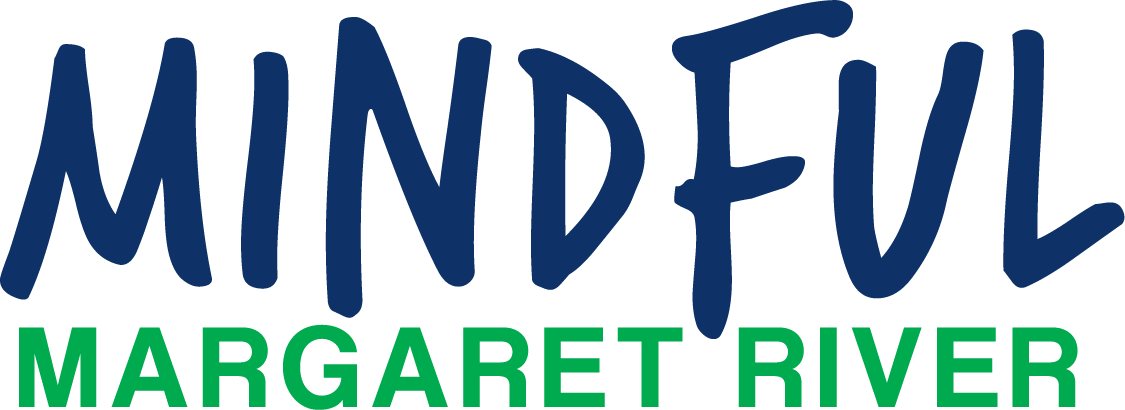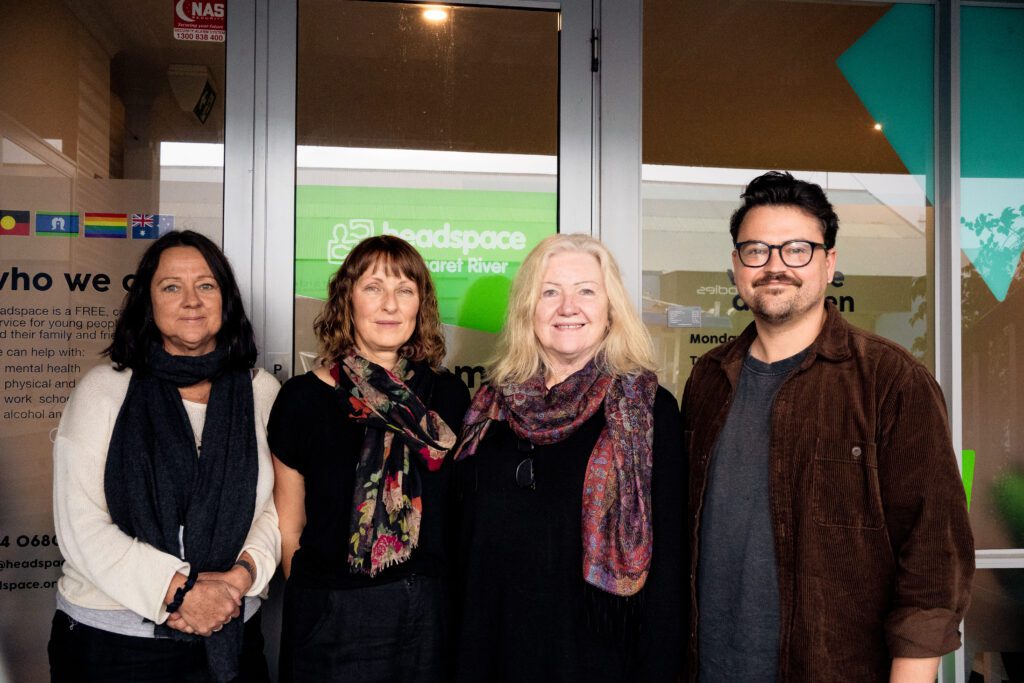This week, we shine a light on the vital mental health and wellbeing support offered by Headspace Margaret River.
We spoke to Dorian to learn more about the team’s work supporting teens, young adults, and neurodiverse individuals in our community.
What are some of the key mental health and wellbeing services headspace offers for young people in the Augusta – Margaret River region?
Headspace Margaret River offers free in-person, outreach, and telehealth–based youth mental health counselling, case management, and care for 12 to 25-year-olds and their families and friends. We also offer support to young people with co-occurring alcohol and other drug use concerns, work and study support needs, as well as sexual and physical health needs.
Can you share how headspace supports neurodivergent youth, including those who live with autism, ADHD, or sensory challenges?
Headspace delivers best-practice mental health care to young people and their families. This includes providing a flexible, trauma-informed and person-centred approach to care, which is defined by discovering and incorporating the unique differences, needs and preferences of the young people who access our services. Headspace counsellors and clinicians are equipped to provide therapeutic support to young people who have experienced trauma, or who have a neurodevelopmental disorder diagnosis such as Autism Spectrum Disorder, Attention Deficit Hyperactivity Disorder or Foetal Alcohol Spectrum Disorder.
While it’s important to note that we do not specialise in neurodevelopmental disorder support, our counsellors can offer therapy that accommodates the differences these young people experience in executive functioning, cognition and sensitivity. We also offer flexibility in session length, outreach support and take lighting, noise and sensory hypersensitivity needs into consideration during sessions, where possible.
There is a dedicated ‘sensory room’ available on site for young people and staff to utilise when needed. While headspace will always advocate for young people to receive the right care at the right time, we can also share care with other services (such as the NDIS providers) to remove barriers to young people with disability accessing support.
What common challenges are young men and women facing locally, and how does headspace tailor support to each group?
Our age range (12-25) captures the key developmental bridge from childhood to adulthood, characterised by biological, psychological, and social changes, growth and often discomfort! This period is also when young people develop their identity and can shift attachment relationships from parents to friends. While completely normal developmentally, it can be a period of instability. This time can be further destabilised by the presence of social and relationship challenges, traumatic experiences, attachment disruptions, and mental health challenges, to name a few.
To add to the mix, our society and culture can also perpetuate ideas about gender, sexuality and mental health that are not healthy, realistic or fair on young people. For example, boys who grow up internalising the idea that it is ‘weak’ to be vulnerable or cry, may develop resistance to their own emotional experience (and pain) as a way of appearing ‘normal’. The biggest challenge for some young men can be the very act of asking for and receiving help when they need it. Headspace works hard to reach boys and men where they’re at and communicate emotional vulnerability and expression as a normal and healthy human experience.
Many young men are facing challenges like depression, anxiety, anger issues, alcohol and other drug use and relationship issues, and at times, they are doing it alone and in silence. We want young men to know that they don’t have to do it alone and there is strength in the vulnerability of reaching out for support, whether that’s to a trusted friend, family member or mental health service like headspace.
Young women’s mental health is also greatly impacted by the negative impacts of certain social and cultural influences. For example, many girls and young women are exposed to unhealthy and unrealistic socio-cultural constructs relating to sex, body image and gender roles, that are often perpetuated through media, advertising and social groups. This can have a significant impact on girls and young women’s mental health, mood, self-esteem, eating behaviours and relationships. In addition to challenges with body image, some girls and young women also face challenges with anxiety, depression, and gendered violence.
Headspace offers both centre-based and outreach clinical services to support girls and young women who are challenged by body image concerns, disordered eating, and violence of any kind. While we will always link young people to specialist support in the areas of family domestic violence and eating disorders, we are committed to being a part of the solution to end gendered violence and better support young people with an eating disorder or disordered eating in the South West.
Finally, it is really important to acknowledge that not all young people have the same socio-cultural vantage point or fit into binary gender constructs. Headspace is therefore committed to recognising and responding to the unique challenges faced by First Nations, gender diverse, LGBTQIA+ and culturally and linguistically diverse young people in our community. All our staff go through additional training to support young people with diverse gender and sexual identities, as well as to foster a culturally safe environment for First Nations young people. Headspace Margaret River is committed to ensuring that our centre and services are a safe and welcoming place for all.
What would you say to a young person who’s unsure about reaching out for help, or doesn’t feel like their struggle is ‘serious enough’?
I would tell them that they don’t have to go through that struggle alone, and that headspace literally exists to support them no matter how big or small their challenges are. We offer a flexible approach to therapy, which means you can access support ‘one session at a time’ or on an ongoing basis, depending on what you and your counsellor decide. There is no pressure to continue attending counselling if you don’t want or need to, and you can request to change counsellor at any time if you don’t think it’s a good fit. You can also request to be seen at home, at school, in the community, over the phone or via video call.
Are there any new programs, workshops, or initiatives you’re particularly excited about right now at Headspace Margaret River?
Yes! Headspace Margaret River is in the process of developing partnerships with two local schools to ensure that young people have better access to mental health services when they need it. Headspace Margaret River has also secured access to a vehicle, which will better equip our case worker to provide practical support and bring mental health support and information to young people facing barriers to engaging in our centre-based service.
How can parents, carers, and friends best support a young person going through mental health challenges, and what role can headspace play in that journey?
The most important thing you can do as a support person is to try to connect with your loved one and their experience respectfully, compassionately and non-judgmentally. This could be as simple as offering a compassionate ear and checking before offering input and advice. Young people often need to know their experience is valid and not an indication of their fault or wrongdoing. Starting with connection and validation helps to build trust and open the pathways of honest communication. Headspace Margaret River offers counselling support and advice to parents, friends and family members of a young person experiencing a mental health challenge to better equip them to support their loved one. Headspace can also provide referrals to other services that specialise in family support, where needed.
To find out more or connect with Headspace Margaret River,
Phone: 08 6164 0680 (option 3),
Email: margaretriver@headspacebunbury.org.au or
drop in to meet the team at 36 Station Rd, Margaret River.
Young people and their carers can also access e-headspace (free national online & phone mental health support) via this link
To access free after-hours crisis mental health advice, contact RuralLink on 1800 552 002.





